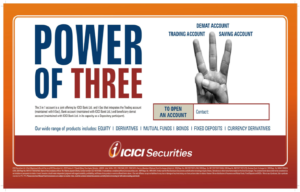Trading Stock CFDs in the UAE: Global and Local Opportunities

The world of trading has evolved rapidly, with Contracts for Difference (CFDs) offering a flexible and potentially lucrative path for those looking to capitalise on both upward and downward market trends. In the United Arab Emirates (UAE), the rise of digital platforms and the region’s investor-friendly environment have opened doors for retail and institutional traders alike to engage in stock CFD trading. This article explores how traders in the UAE can take advantage of both global and local opportunities, while also understanding the unique advantages and considerations of operating in this dynamic market.
Understanding Stock CFDs
Stock CFDs are financial derivatives that allow traders to speculate on the price movement of individual stocks without owning the underlying asset. When you trade a stock CFD, you’re entering into a contract with a broker to exchange the difference in a stock’s price between the time the contract is opened and closed. If the price moves in your favour, you profit; if it moves against you, you incur a loss.
Unlike traditional investing, where you buy shares to hold for dividends or long-term capital gains, CFDs are more suited for short to medium-term strategies. They offer the ability to go long if you believe a stock’s price will rise, or short if you anticipate a decline. CFDs are typically traded on margin, which means you can control a large position with a relatively small amount of capital. However, this leverage amplifies both gains and losses. Find out more at ADS Securities.
The Appeal of CFD Trading in the UAE
The UAE is increasingly seen as a global financial hub, and for good reason. The region offers a unique blend of advanced infrastructure, tech-savvy investors, and favourable regulations that attract traders from around the world. One of the key attractions is the absence of capital gains tax, which allows traders to retain a larger share of their profits compared to many other jurisdictions.
Moreover, the UAE’s regulators—such as the Securities and Commodities Authority (SCA), Dubai Financial Services Authority (DFSA), and Abu Dhabi Global Market (ADGM)—have established clear guidelines to ensure investor protection while fostering innovation. Many brokers in the UAE are integrating Islamic finance principles, offering Sharia-compliant CFD trading options, which appeal to a significant portion of the local population.
Global Opportunities with Stock CFDs
For UAE-based traders, one of the biggest advantages of CFD trading is the access it provides to global stock markets. Through CFDs, you can speculate on the performance of popular equities listed on major exchanges like the NYSE, NASDAQ, London Stock Exchange, and Tokyo Stock Exchange. This global access enables traders to capitalise on economic developments, earnings reports, and macroeconomic shifts far beyond the region.
For instance, traders might choose to go long on tech stocks during an earnings season in the United States or short European financials in response to regulatory changes. The flexibility of CFDs, combined with 24/5 trading access and real-time execution, allows UAE traders to stay engaged with the global financial ecosystem and adjust their strategies quickly as new opportunities arise.
Local Opportunities: UAE and GCC Stocks
While international markets are attractive, there are also valuable opportunities closer to home. Many brokers offer CFDs on prominent companies listed on the Dubai Financial Market (DFM), Abu Dhabi Securities Exchange (ADX), and even Saudi Arabia’s Tadawul. These include blue-chip stocks such as Emaar Properties, Emirates NBD, Etisalat Group, and First Abu Dhabi Bank.
Local markets often respond to regional events, including oil price fluctuations, government policy shifts, and tourism trends. These regional dynamics create price volatility and speculative opportunities that CFD traders can exploit. Additionally, the Gulf Cooperation Council (GCC) economies are rapidly diversifying, and new listings in healthcare, logistics, and technology sectors are creating fresh areas of interest for stock CFD trading.
Choosing the Right CFD Broker in the UAE
Selecting a trustworthy CFD broker is essential to success and security. Traders should prioritise brokers regulated by the SCA, DFSA, or ADGM, as these entities ensure that the platforms adhere to strict standards of transparency, capital adequacy, and client fund protection.
Other considerations include the broker’s trading platform, available instruments, fee structure, and customer support. Advanced platforms like MetaTrader 4 and 5 or cTrader offer powerful charting tools and automation features. Many reputable brokers also provide educational resources and demo accounts, which are especially valuable for novice traders looking to test strategies without financial risk.
Local brokers often cater more specifically to regional regulations and preferences, including the option for Sharia-compliant accounts. On the other hand, international brokers may offer broader market access, lower spreads, or more sophisticated tools. The choice depends on the trader’s goals and comfort with regulation and platform features.
Conclusion
The UAE provides a unique and fertile environment for trading stock CFDs. With access to both global and regional markets, favourable tax policies, and a robust regulatory framework, traders in the Emirates can leverage a wide range of opportunities. Whether you are interested in U.S. tech giants or local blue-chip stocks, the flexibility and accessibility of CFDs make them an attractive instrument for speculation and hedging alike.






